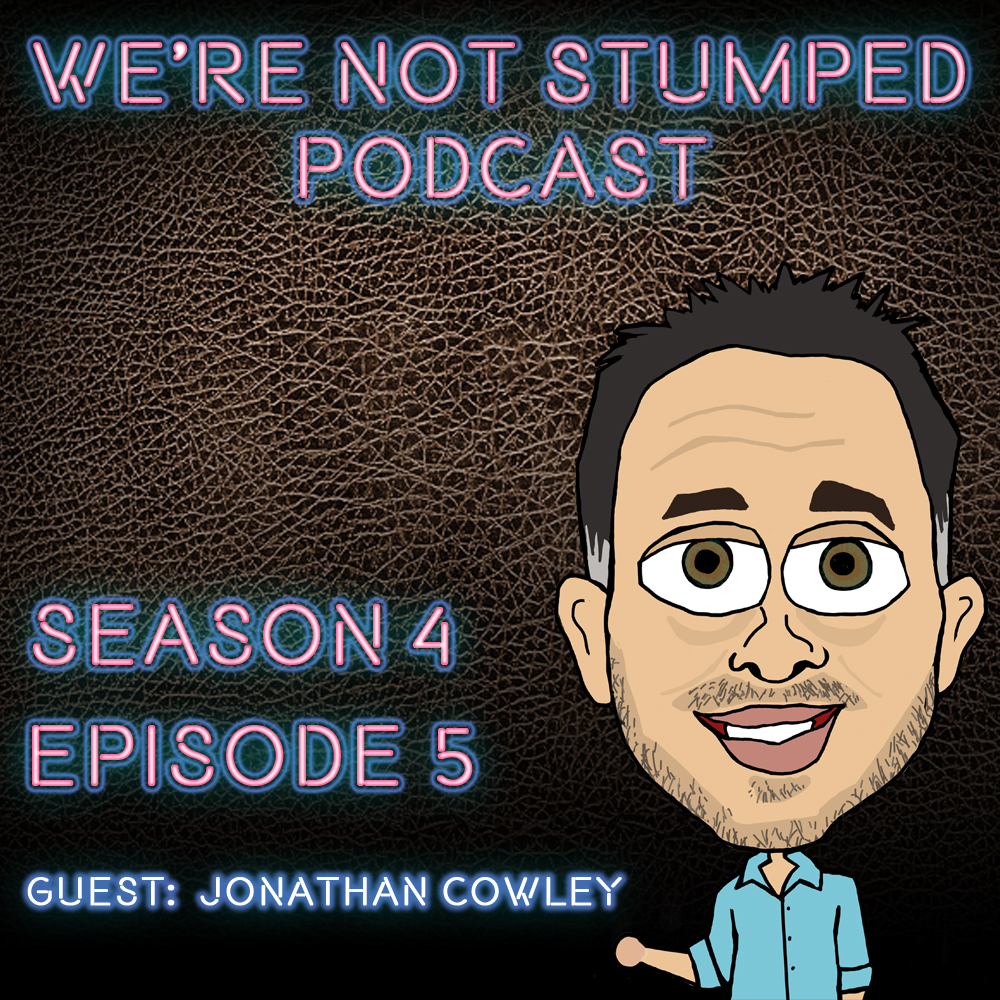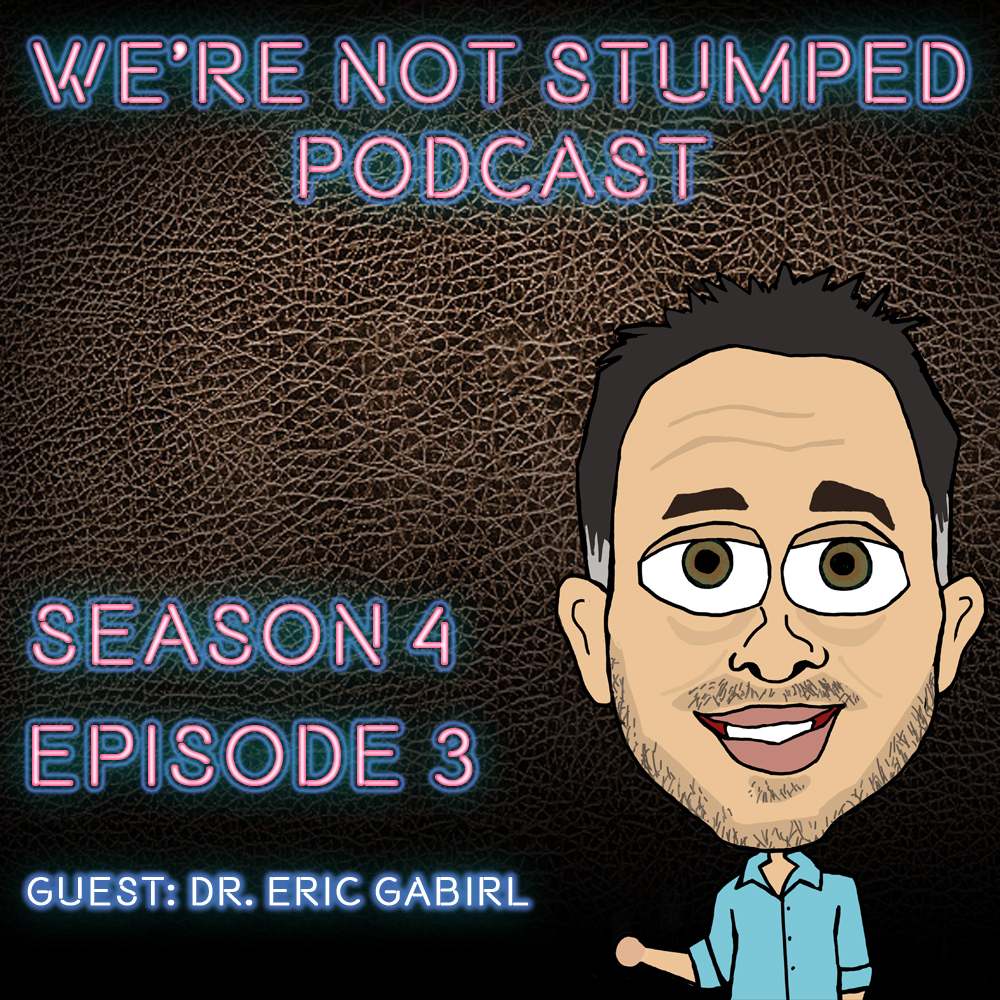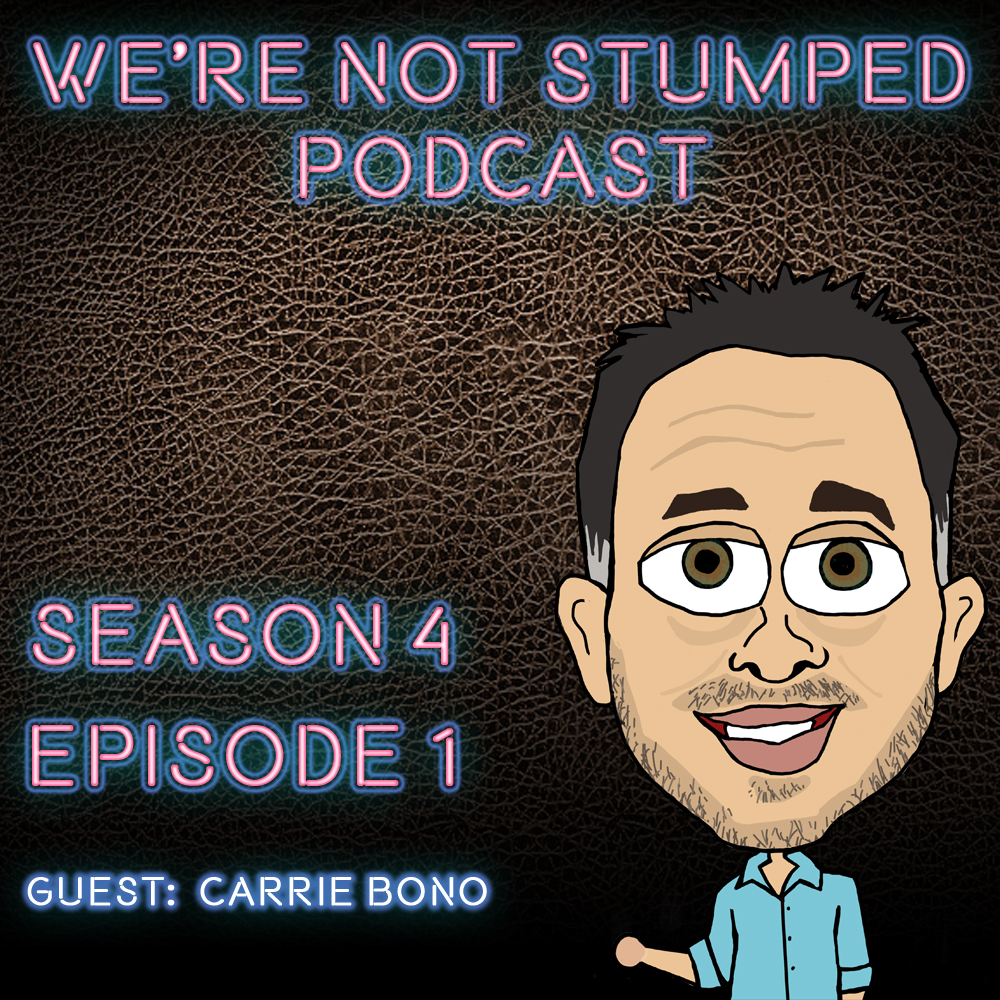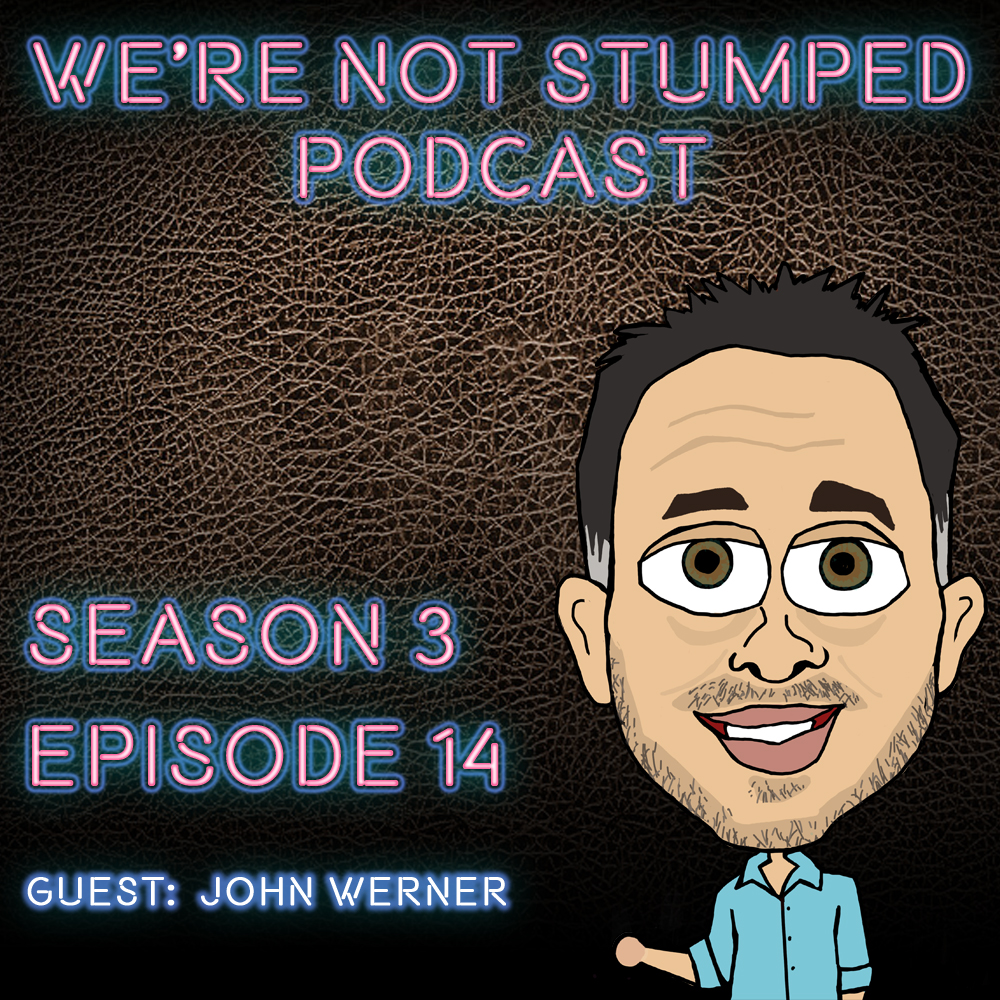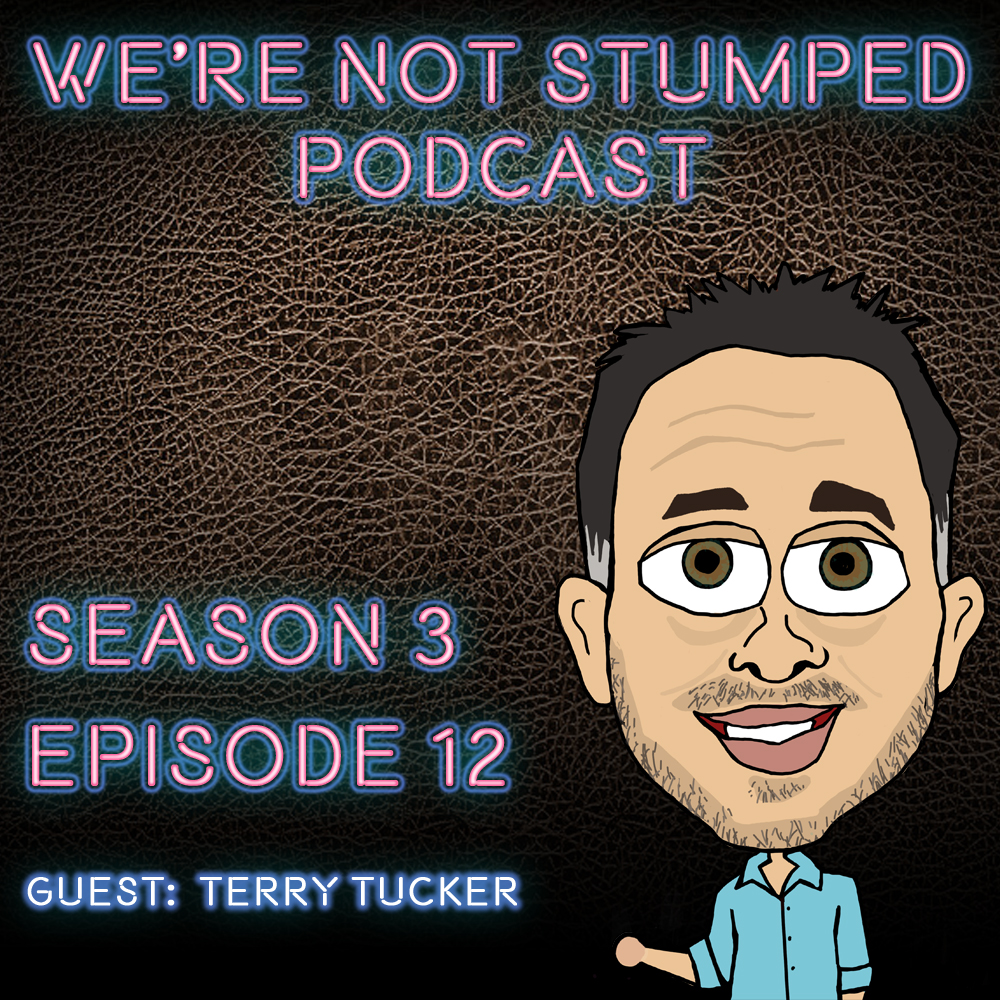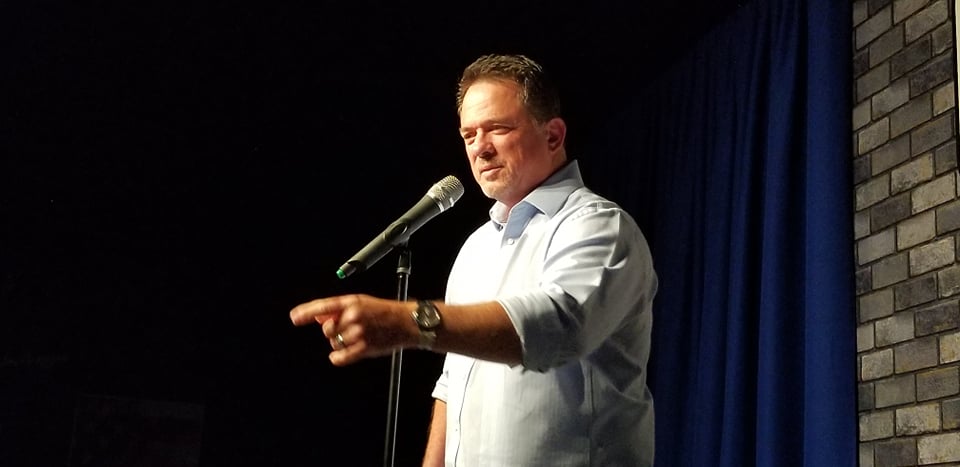Amputee Due To Medical Condition Podcast
Remarkable Journey: Todd Key’s Triumph Over Adversity as a Amputee Cyclist
In this episode of "We're Not Stumped," we feature the inspiring Todd Key, a one-legged cyclist who demonstrated extraordinary determination and resilience. Todd’s journey began at age 7 with a severe injury to his right hand, followed by the amputation of his right leg due to muscle cancer at 17. Despite years of
Right Hand Amputee Podcast with Jonathan Cowley – We’re Not Stumped
Welcome back to the “We’re Not Stumped” podcast! Host Mike Bolland introduces an exceptionally inspiring guest, Jonathan Cowley. Jonathan’s story is a profound example of resilience and determination in the face of formidable challenges. Jonathan's journey began in early 2013 when he discovered a small lump on his right hand. With a young
Bilateral Above Knee Amputee Dr. Eric Gabriel Podcast
In this episode of the We’re Not Stumped podcast, I have the pleasure of hosting Dr. Eric Gabriel, a bi-lateral above-knee amputee for the second time. Born and raised in Levittown, Long Island, NY, one of the first pre-planned housing developments in the United States, Eric enjoyed a childhood filled with school and
We’re Not Stumped – Carrie Bono, Left Below Knee Amputee and host of Where Did My Foot Go
Today's special guest on the We're Not Stumped podcast, Carrie Bono, is on a mission—a mission to uplift and motivate others through sharing her personal journey on her YouTube channel, "Where Did My Foot Go." Following a series of life-altering events, including a bike accident and diabetes, Carrie experienced the loss of her
We’re Not Stumped Podcast John Werner Right Below Knee Amputee
In this episode of the We're Not Stumped podcast, I welcome John Werner. Mr. Werner, who retired from Xerox after 41 years in the fall of 2018, faced an unexpected challenge shortly after his retirement. Just a couple of months into his retirement in January 2019, he began experiencing severe pain in his
We’re Not Stumped Limb Loss Podcast, Cancer Warrior Terry Tucker, Author: Sustainable Excellence
Terry Tucker is a renowned international podcast guest, specializing in motivation, self-development, and mindset. With a diverse background spanning from being an NCAA Division I college basketball player to serving as a SWAT Team Hostage Negotiator, Terry brings a wealth of experience to his speaking engagements. He firmly believes in the transformative power
About Amputee Due To Medical Conditions
Limb loss due to a medical condition refers to the loss of one or more limbs (such as arms or legs) as a result of a medical condition or disease. Unlike traumatic limb loss, which often occurs due to accidents or injuries, medical conditions leading to limb loss are typically caused by underlying health issues that necessitate surgical amputation to improve the individual’s overall health, prevent complications, or enhance their quality of life. Some common medical conditions that can lead to limb loss include:
- Peripheral Arterial Disease (PAD): PAD is a condition characterized by the narrowing or blockage of arteries, usually in the legs, due to atherosclerosis. Severe cases of PAD can lead to insufficient blood flow to the extremities, resulting in tissue damage and the need for amputation.
- Diabetes: Diabetes can lead to a range of complications, including peripheral neuropathy and poor circulation. Diabetic foot ulcers that do not heal properly can become infected and, in severe cases, necessitate amputation.
- Cancer: In some cases, cancerous tumors or sarcomas in the limbs may require surgical removal, resulting in limb loss. This is often done to prevent the spread of cancer to other parts of the body.
- Infections: Severe, uncontrollable infections, such as necrotizing fasciitis or gangrene, can cause extensive tissue damage and may require amputation to prevent the spread of infection to other areas of the body.
- Vascular Diseases: Various vascular diseases, such as Buerger’s disease or thromboangiitis obliterans, can lead to arterial inflammation and blockages, ultimately leading to limb ischemia and amputation.
- Congenital Conditions: Some individuals are born with congenital conditions that affect limb development or function, and in certain cases, amputation may be necessary to improve mobility or address complications.
- Complications of Orthopedic Conditions: Chronic orthopedic conditions, such as severe osteomyelitis (bone infection), extensive osteoarthritis, or Charcot joint disease, can lead to joint destruction or bone deterioration, sometimes requiring limb amputation.
Limb loss due to a medical condition is typically a medically necessary intervention aimed at preserving the individual’s overall health and preventing further complications. After amputation, individuals often undergo rehabilitation, including physical therapy, occupational therapy, and prosthetic fitting, to regain mobility, adapt to their new circumstances, and improve their quality of life. The medical team, including surgeons, prosthetists, and therapists, works together to ensure a comprehensive and personalized approach to care for individuals who have experienced limb loss due to a medical condition.


